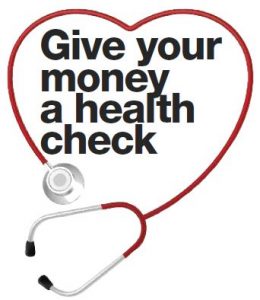In the first of two parts, John Lowe the Money Doctor reveals in simple language all you need to know about life and health protection.
Woody Allen, the American filmmaker, quipped that his ‘idea of hell is to be stuck in a lift with a life insurance salesman’. Mr Allen is by no means alone in his distrust of both life insurance and the people who sell it. Why should this be? I’m sure it is partly because no one likes to think about anything bad happening to them, and partly because – in order to draw attention to a very real need – life insurance salespeople are forced to bring up uncomfortable subjects with their prospective clients.
However, although it is not something you may rush to tackle, making certain that you have adequate life – and health – insurance will bring you genuine peace of mind.
First-class medical protection, critical or serious illness cover and life insurance are available at a remarkably low price providing you know how to buy it but you must
- Make sure you are not sold protection you don’t need
- Decide what cover is sensible for you to take out
- Find out who you can trust to advise you
- Make sure you get your cover at the lowest possible price
You know you should…
It isn’t pleasant to dwell on being ill, having an accident or – worst of all – dying. Nevertheless, you owe it to yourself – and those you care for – to spend a little time making sure you are protected should the worst happen. This means being:
- protected by income protection, also called PHI (permanent health insurance) if you are too unwell to earn an income
- protected by private medical insurance if you need medical attention
- protected by life cover if you, or your partner, should die.
There are, of course, plenty of facts and figures available proving just how likely it is for someone of any age to fall ill or die. Sadly, such statistics are borne out by everyone’s personal experience. The truth is we all know of instances where families have had to face poor medical care and/or financial hardship as the result of a tragedy. We all know, too, that spending the small sum required to purchase appropriate cover makes sound sense.
Spend time, not money
The secret is to identify exactly what cover you really need and not to get sold an inappropriate or overpriced policy. It is also important to review your needs on a regular basis. What you require today, and what you’ll require in even two or three years’ time could alter dramatically.
The best way to start is by considering what risks you face and deciding what action you should take. Here are three questions that everyone should ask themselves, regardless of their age, gender, health or financial circumstances.
Question 1: What would your financial position be if you were unable to work – due to an accident or illness – for more than a short period of time?
Obviously, your employer and the state will both be obliged to help you out. However, if you have a mortgage, other debts and/or a family to support your legal entitlements are unlikely to meet anything like your normal monthly outgoings. If you do have a family then your spouse will have to balance work, caring for you and – possibly – caring for children. Is this feasible or – more to the point – desirable? How long will your savings last you under these circumstances? Do you have other assets you could sell?
Unless you have substantial savings and/or low outgoings then income protection cover and/or critical/serious illness insurance could both make sound sense.
Question 2: Do you have anyone dependent on you for either financial support or care? Are you dependent on someone else financially? Do you have children – or other family members – who would have to be cared for if you were to die?
If you are single and don’t have any dependents then the reason to take out life insurance is in order to settle any debts and/or leave a bequest. If, on the other hand, there is someone depending on you – either for money or for care – then life cover has to be a priority.
If you are supporting anyone (or if your financial contribution is necessary to the running of your household) then you need to take out cover so that you don’t leave those you love facing a financial crisis.
If you are caring for anyone – children, perhaps, or an ageing relative – then you should take out cover so that there is plenty of money for someone else to take over this role.
Question 3: Does it matter to you how quickly you receive non-urgent medical treatment? If you need medical care would you rather choose who looks after you, where you are treated and in what circumstances? How important is a private room in hospital to you?
We are fortunate enough to enjoy free basic health care in Ireland. However, if you are self-employed or if you have responsibilities which mean that it is important for you to be able to choose the time and place of any medical treatment, then you should consider private medical insurance.
Next week in Part 2, I shall give the Lowe down on all the different types of cover available … stick with me…

